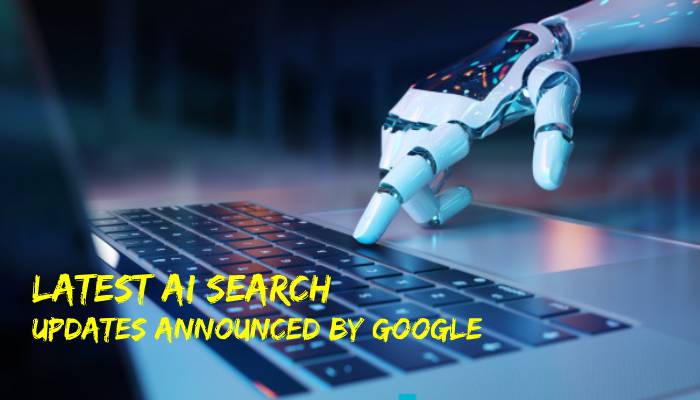9 Latest (and Impressive) AI Search Updates Announced by Google
Google has come up with a slew of AI Search Updates recently that will bring it several steps closer to providing the best experience to its users. The sheer volume of information on the web often leaves people perplexed and makes it difficult to find the exact information they are seeking. And Google is leaving no stone unturned to make it easier for people to find just what they are looking for.
With the recent AI Search Advancements, Google is making significant improvements that are going to make a visible difference in the way the websites rank as well as how results will be displayed for a query.
Let’s take a look at these search updates that Google announced recently and discuss what they mean.
AI Search Updates Announced by Google
- BERT Is Now Applied to Almost Every Search Query
The core purpose of Google Search has always been to understand queries the best possible way and rank the most relevant results. BERT lies at the heart of Its Natural Language Processing Algorithm and helps it understand the context and subtext of a query. In the beginning, BERT was applied to only 10% of the search queries. But now, BERT is said to impact almost every English search query so that Google Search users get high-quality results.
- New Spelling Algorithm to Decipher Misspelled Queries
It is common for people to use misspelled words while searching for something online. Google has also put its foot forward to make all such people happy who often type queries with wrong spellings. To make that happen, Google is introducing a new spelling algorithm that will make substantial improvements to Google Search’s ability to understand misspellings and displaying results just within 3 milliseconds.

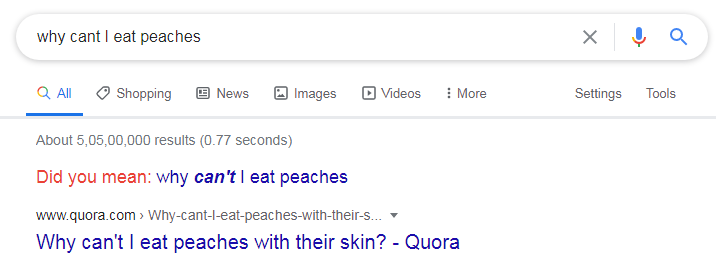
- Web Pages also rank based on their passage for question-form queries
We all know how hard it is to find very specific data when so many links and websites are displayed on SERPs. Google has made it just easier for users by indexing not just web pages but also passages. If answers to users’ questions are deep buried in a web page, Google will now index individual passages from the pages. This update will improve 7% of search queries across all the languages.
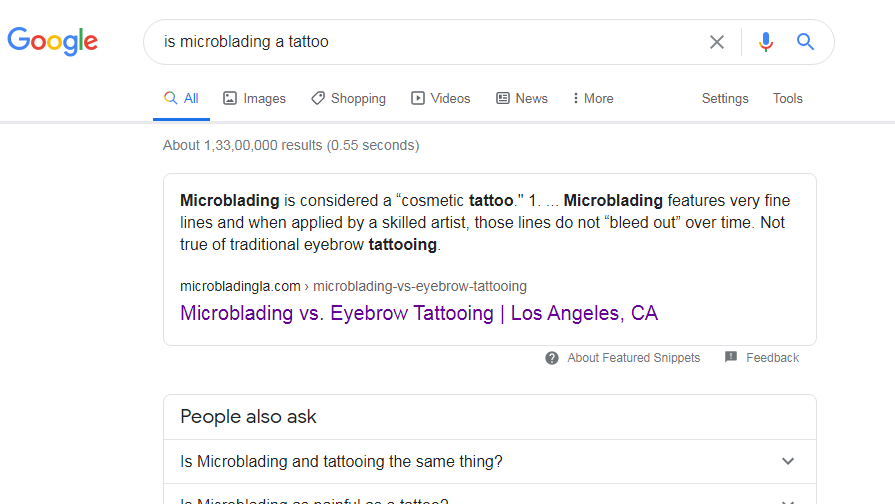
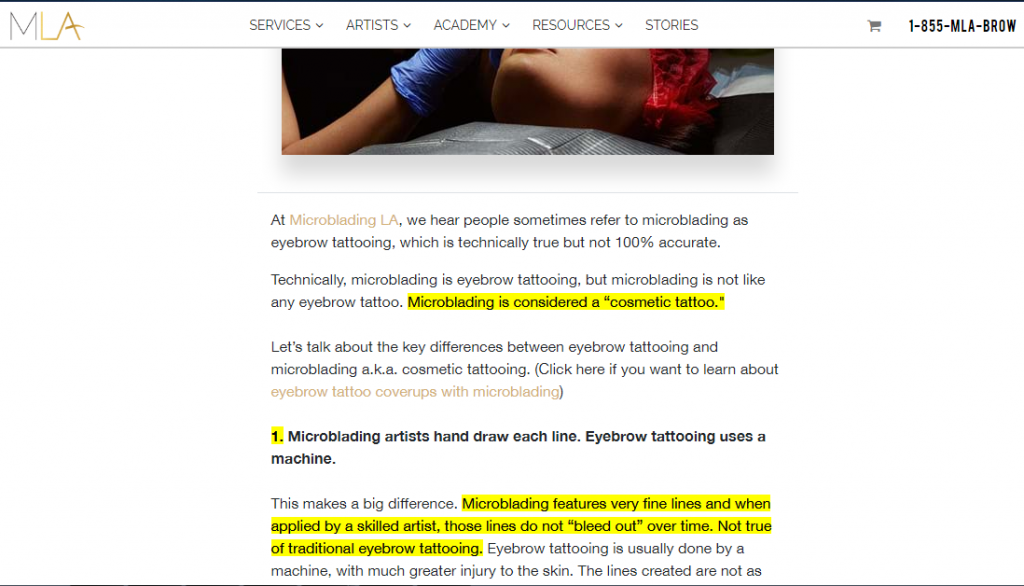
Google shared that:
//
By better understanding the relevancy of specific passages, not just the overall page, we can find that needle-in-a-haystack information you’re looking for.
- Results for Subtopics around a Query to Introduce Diversity
Google has applied neural nets to figure out what kind of subtopics can be created around an interest (i.e. a broad query). It means now you will see diversity in the search results. For instance, if you are searching for “home decor accessories”, Google will now interpret the query and then find and show relevant subtopics, such as contemporary decor accessories, budget-friendly home decor ideas, home decor trends, and so on. Google also shared that this update will be rolled out by the end of this year.
- Live View Feature to Maintain Social Distancing
In response to the rise of COVID-19 pandemic, Google has made several improvements and is still working to help its users navigate the world and get things done much safer way than before. Now, you will be able to see live busyness updates so that people can know how busy a place is at the moment.
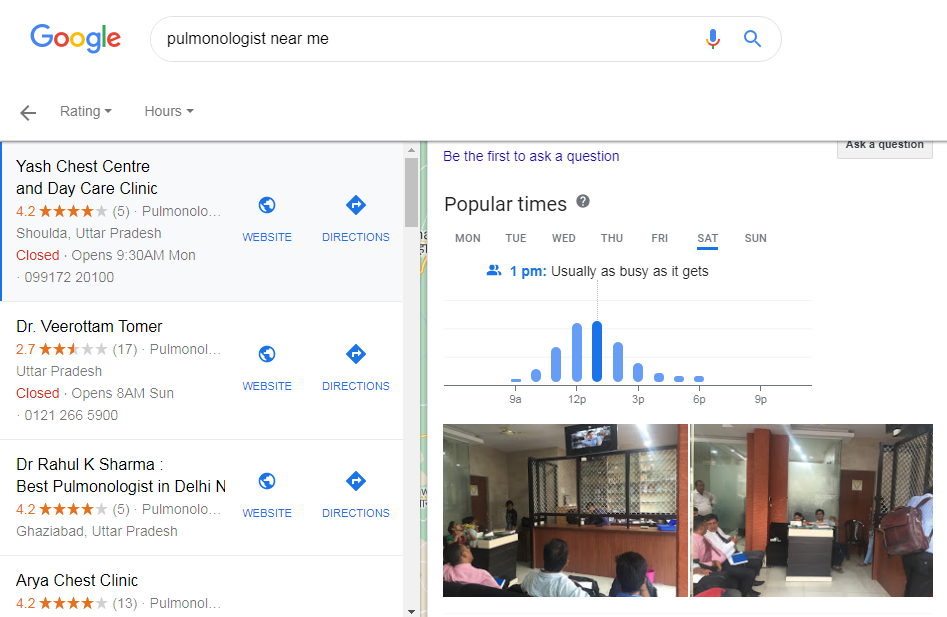
Google has also added a Live View feature to assess a place even before stepping inside. It will greatly help people maintain social-distancing and decide on whether it is safe to enter particular business premises or not.
Besides, it is also adding COVID-19 safety information on the front and center of Business Profiles on Google Search as well as Maps. All of this is made possible through Duplex Conversational Technology that will allow local businesses to keep their information, including opening hours and store inventory, updated online.
- Query-Specific Video Search Results
Google’s AI-driven approach is now helping it understand the deep semantics of a video and identify the specific moments related to a query search. In simple words, for queries that prompt Google Search to display video results, now you will get a result of the specific section of the video that satisfies your query and not the whole video.
For instance, if you want to know how to grill a chicken while making a particular recipe, now Google will find the specific moment in a video that tells the technique of grilling a chicken instead of displaying the whole video of the recipe as a result. So, you won’t have to waste your time seeing the entire video or forwarding it to see exactly what you want to know about.
According to Google, this technology is right now in its testing phase. It might be applied to 10% of searches made on this search engine by the end of 2020.
- Statistical Data Has Become More Accessible than Ever
Now, Google uses Natural Language Processing to better understand whether or not a search query is more satisfied by a statistical data set. If yes, it will pull results from the Data Commons – an open knowledge database of statistical data that was started in the collaboration of the U.S. Census, Bureau of Labor Statistics, World Bank, and many other organizations.
Apart from mapping your search to specific statistical data, it will also present additional information to provide context so that you can easily explore the topic in depth.
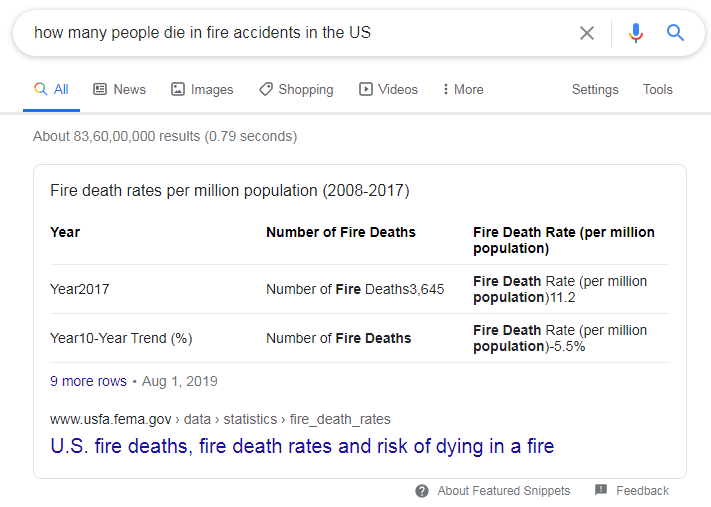
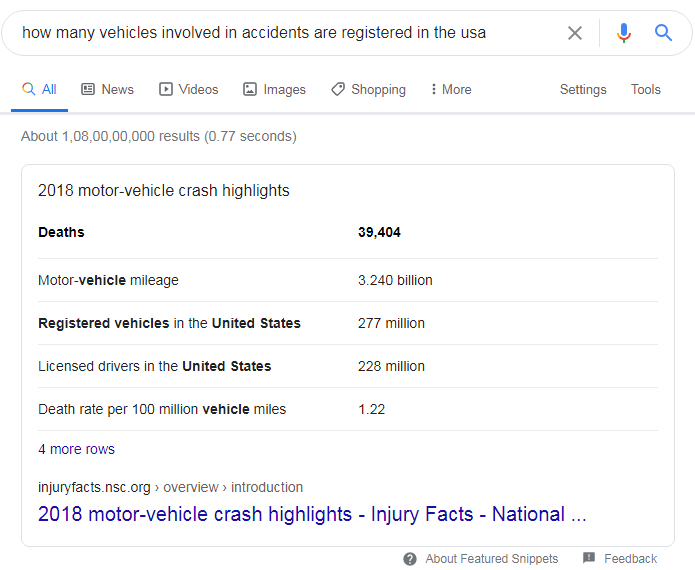
This will greatly impact websites that have relied on statistical information for ranking and the ones that sell statistical reports.
- Pinpoint – A New Tool to Empower Journalists
Journalism is something that takes lots of time as reporters are required to go through huge collections of documents, images, and audio recordings. Google is launching a new tool called Pinpoint to empower journalists and help them browse through hundreds of thousands of documents. This tool will automatically identify and organize the most frequently mentioned people, organizations, and locations.
- Hum to Search What Is Stuck In Your Mind
We all have gone through experiences when a song gets stuck in the back of our mind and we can’t recall what that song actually is. Fortunately, you no longer have to indulge in mental gymnastics to recall the lyrics. Google has made your life even simpler with its AI models. From now on, when a rhythm keeps hovering over your mind but lyrics aren’t clear to you, just hum to search and Google will match the melody to the right song for you. And personally, I find this innovation quite amazing.
It’s interesting to see how Google is making huge strides of improvements to make its users experience better than ever. Undoubtedly, Google users will be quite happy to know all these advancements. On the other hand, people who rely on tips, tricks, and cheat sheets to perform SEO and rank their websites on Google will find it several times harder. In fact, all these updates will also present challenges to SEO pros and marketers.
To be honest, great expertise will be expected from SEO pros and marketers to improve rankings on Google Search and achieve desired results. This, in turn, will also require businesses to pay more attention while hiring an SEO agency. So, be careful in what you are doing and choosing.
Latest posts by Vijaya Tyagi (see all)
How To Track Shopify SEO Performance & Metrics (2025) - January 14, 2025
Link Building Strategies: The Ultimate Techniques for 2025 - December 31, 2024

